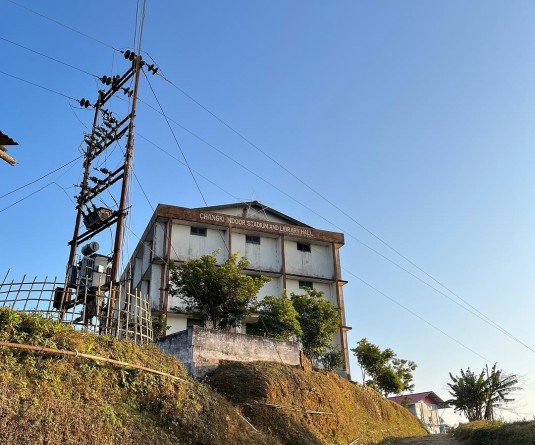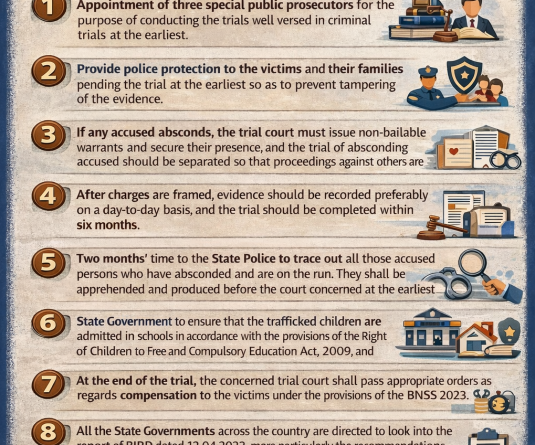
Longrangty Longchar
Dimapur | January 9
Cases of discrimination, harassment and humiliation meted out to the people from northeastern India staying in the country’s capital is an unwanted fact which have been swept under the carpet for a long time. However, with the recent molestation case of two Manipuri sisters and assault last weekend by 25 rowdies, reports have emerged that almost half the women sexually harassed in the Indian capital and its neighborhood are from the Northeast region.
Barely three months after the Northeast Support Centre and Helpline, a help centre dedicated to youth from the northeast living in Delhi and the National Capital Region (NCR) was set up by a group of concerned social workers, human rights activists and media people from the north east, the Centre has been flooded with complaints related to sexual harassment, which had been highlighted in the media from time to time through the Centre.
‘It’s been just three months since we launched the Northeast Support Centre and we have received more than 10 reports of sexual harassment,’ said Madhu Chandra, the spokesman of the NES&HC.
‘From what we have researched and according to media reports, we have found that nearly 50 percent of the cases of sexual harassment are targeted at women from the northeast. ‘The Delhi-NCR region has nearly 85,000 people from the northeast. More than 4,000 northeastern youth take admission to various undergraduate and other courses in Delhi University every year.
Speaking with The Morung Express from Bhubenshwar this evening, Madhu Chandra expressed deep concern that nothing has changed so far with the people living in Delhi even after a lot of cases were highlighted in the national media.
Chandra said that the mindset of the people in Delhi towards the northeastern people, the lackadaisical attitude of the Delhi police towards such sexual harassments needs to be tackled. Chandra also expressed dismay over the silence and indifferent attitude of the MPs and the officers from North East region staying in Delhi when such incidents occur.
Chandra strongly dismissed the general idea in Delhi that the molestation incidents happened because of the north east girls wearing provoking and revealing dresses. He asserted that the molestation of two Manipuri women happened in their café, the molestation cases in the victim’s home and office. “I totally disagree with it (revealing dresses being the main factor)…it (molestation) happened in front of the public,”
A working Assamese lady, staying in Delhi for the last four years, aired the same view and put the blame everything on the mindset of the people in Delhi towards the NE people. “Few women wear provoking dresses, but I don’t think that dress is one thing that provokes them (Delhi males), because it has got to do something with behavioral problem and the mindset of the people,” the lady from Assam told The Morung Express. She asserted that people in Delhi have a ‘preconceived notion about the people from northeast and considers them as ‘easygoing’ people, which is wrong. She said that the people from the northeast, irrespective of states, should stand up united in a strong way.
Rebekah Jamir, a professional who was brought up in Delhi said that ‘eve-teasing and passing of comments’ are an everyday affairs in Delhi, however she also disclosed that ‘there are lot of molestation cases which go un reported and unregistered’. She said that ‘only the bold ones register’ complaints with the police; she said the non-cooperation of the Delhi police and sensationalizing of news by the media discourage victims from registering complaints.
Rebekah’s mother, who has been a Deputy Resident Commissioner in Nagaland house Delhi, said that it is insulting that the people in Delhi have to look down on the people from northeast. Though a concerned mother, she expressed hope that her daughter would not get into such kinds of incident.
Asserting that there is deep anger and frustration, she advised northeast girls to be more careful and never go about with suspicious characters. Northeast women in Delhi live in an environment of fear and insecurity even in the nation’s capital.
Chandana Saikia from Assam who graduated from Delhi University and is now working in a public relations firm in the capital said that even after seven years of staying in this city, she has yet to feel any more safe or secure. ‘Every other day we keep hearing of cases of molestation and sexual harassment in Delhi. Although I take all of this in my stride, my parents back at home are always worried and give me panic calls if they can’t get through my phone,’ Saikia said.
‘But despite giving everyone an impression that nothing scares me, I am always on my guard.
Even after seven years of staying in the capital, I don’t feel at home here,’ she added. Similarly, Lara Subba from Manipur, who lives with her friend in north Delhi, said she doesn’t feel secure in the capital at all and constantly feels threatened.
‘The other day I and my friend were coming in a rickshaw when two men started following us, calling us ‘chinkies’ and passing lewd remarks. Scared, I started screaming at the top of my voice, which made them change their route, ‘Subba said. ‘Just because we look different and wear more Western outfits, people think that they can take us for granted. That’s why we usually stick together, with people from our own community. ‘
In May 2005, a 19-year-old Delhi University student from the northeast was raped by four men in a moving car after dragging her from a roadside eatery in south Delhi’s Dhaula Kuan area. The sensational case made headlines for days. In September last year, there was a huge outcry when three northeastern girls were molested in the Delhi University campus. Then in December, the Northeast Support Centre received a complaint from a girl from Manipur working as a receptionist in a private company in Gurgaon that her boss molested her in the office.
Similarly, a minor northeastern girl in Gurgaon is still suffering after she was molested three times in December by her house owner. Ranjana Kumari, director of the Centre for Social Research and president of Women Power Connect (WPC), said this issue is more prevalent in the northern belt because of the mindset of the men.
‘In the northern belt, the mindset is such that the men believe they can control women physically. That’s why they can’t stand the freedom of sexuality that men and women in the northeast enjoy,’ Kumari said. ‘There’s no way out of this problem but for women to take charge of these issues. In this regard, we will be observing a National Shame day across the country, hopefully coinciding with the Women’s day March 8, to tell people that women must be respected.’
D C Srivastava, the Deputy Commissioner of Police, north Delhi, however, said that in the past year-and-a-half, they have registered just two cases of sexual harassment against northeastern women. ‘The number of such cases is not that high,’ he said.
The reason for this, according to Chandra, is that victims of sexual or any other kind of harassment hesitate to lodge an official complaint with the police. ‘Staying so far away from home and not wanting to get into any complicated situation, most complainants who come to us hesitate to approach the police and lodge a First Information Report (FIR),’ Chandra said.
‘When we tell them that we are not here to replace the police, but help facilitate smoother communication with them, they leave the case at that. That’s why most of the crimes go unreported and the accused goes scot-free. This is a major hurdle that we are facing,’ Chandra said.
(With Agency inputs)





